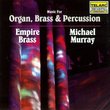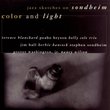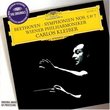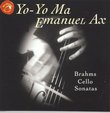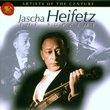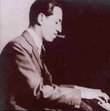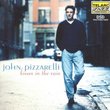| All Artists: Carl Orff, Christian Thielemann, Christiane Oelze, Simon Keenlyside, Chor und Orchester der Deutschen Oper Berlin, David Kuebler Title: Orff - Carmina Burana / Oelze, Keenlyside, Kuebler; Thielemann Members Wishing: 0 Total Copies: 1 Label: Deutsche Grammophon Release Date: 8/10/1999 Genre: Classical Style: Opera & Classical Vocal Number of Discs: 1 SwapaCD Credits: 1 UPC: 028945358727 |
Search - Carl Orff, Christian Thielemann, Christiane Oelze :: Orff - Carmina Burana / Oelze, Keenlyside, Kuebler; Thielemann
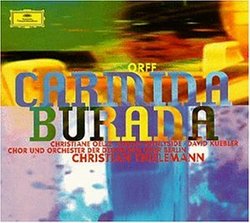 | Carl Orff, Christian Thielemann, Christiane Oelze Orff - Carmina Burana / Oelze, Keenlyside, Kuebler; Thielemann Genre: Classical
Every concert-season programmer can depend on Carmina Burana to bring down the house. Since its premiere in 1937, Carl Orff's theatrically vivid, earthy cantata setting of the medieval poetry of wandering minstrels has ke... more » ![header=[] body=[This CD is available to be requested as disc only.]](/images/attributes/disc.png?v=a4e11020) ![header=[] body=[This CD is available to be requested with the disc and back insert.]](/images/attributes/disc_back.png?v=a4e11020) ![header=[] body=[This CD is available to be requested with the disc and front insert.]](/images/attributes/disc_front.png?v=a4e11020) ![header=[] body=[This CD is available to be requested with the disc, front and back inserts.]](/images/attributes/disc_front_back.png?v=a4e11020) |
Larger Image |
CD DetailsSynopsis
Amazon.com Every concert-season programmer can depend on Carmina Burana to bring down the house. Since its premiere in 1937, Carl Orff's theatrically vivid, earthy cantata setting of the medieval poetry of wandering minstrels has kept its extraordinarily popular status. Christian Thielemann's new recording by no means displaces the classic accounts by Jochum or Ormandy, but it dusts off many of the clichés that have gathered around Carmina and conveys an overarching, coherent vision that is frequently lacking in performance. Thielemann brings this triptych of scenes to life--springtime, the tavern, and the court of love--with an understanding of pleasure and pain as opposites of the same coin in each, so that the framing chorus to "Fortune, Empress of the World" carries tremendous weight. Contrasts between Orff's exuberant, Stravinsky-derived rhythmic vigor and the score's more introspective moments are favored, with subtle adjustments of tempo along the way. Rich percussive details as well as the choral body itself are sometimes obscured in the recorded sound (not nearly so bright or forward as in Previn's fine 1975 account), but one of this disc's great assets is its trio of soloists, including a fantastically expressive baritone in Simon Keenlyside and a ravishing portrayal by Christiane Oelze of the young girl in the tunic who comes to discover love. Thielemann allows them ample freedom to shape their phrases with the most varied meaning. This performance isn't interested solely in pumping up your metabolism, but in searing your heart as well. --Thomas May Similarly Requested CDs
|
CD ReviewsThielemann lets "Carmina" breathe Thomas B Dawkins | 03/01/2000 (4 out of 5 stars) "One of the major complaints that I have heard about this recording is that there is not quite enough rhythmic emphasis for many peoples' tastes. Although Carmina Burana is certainly a piece with a very percussive nature, Theilemann allows more room for the music to flow organically, which is a pleasant break from the constantly incisive recordings that are more common. (Even Previn's recording, also on DG, is a good deal more harsh in the louder sections). The criticism of the caesuras between the first three bars of "O Fortuna" is only partially valid in that Orff does indicate breath marks between these statements (which are followed all-too rarely). However, perhaps this recording exaggerates them a bit.The entire first section is done very well. It is a nice break to not hear all of the Tanz done at breakneck speed for a change. Were diu werlt alle min sings out most jubilantly. Keenlyside's interpretation of Estuans interius and Ego Sum Abbas is effective, although the falsetto cadenzas in Dies, Nox et Omnia are a little heavy on the rubato. I generally prefer an Olim Lacus done by a countertenor or else the baritone soloist in falsetto (as was the case with the original performance), and find the plena voce version with a high tenor strained, although appropriately painful for a song sung by a roasted swan.The third section "Cour d'Amours" is the most different. Thielemann allows the melodic lines to flow and intertwine, especially in Amor Volat Undique, which is sung beautifully by the boy's choir. The soprano soloist, Ms. Oelze, does a fine job, although not quite as satisfying as Barbara Bonney's In Trutina, which remains my favorite moment in all of the Carminas I have heard. This is a recording that brings new light to a warhorse of a piece, and is well worth looking into. There are more "authoritative" accounts, including Jochum's recording with Janowitz and Fischer-Dieskau that was signed by the composer, but for a truly excellent performance with more introspection than usual, this is the way to go." A new one that is very good Thomas B Dawkins | 04/12/2002 (5 out of 5 stars) "About ca 50-60 Carmina Burana versions is out there and this new one is among the finest, even if it not better than Ozawas, Dutioit and the legendary Jochum (Deutche orginal with Fischer-Dieskau), but this one stands up very well and deserves your attention.It is a little bit slower than usual (a couple of minutes over 1 hour) and that could ruin this work but it doesnt. Thielemann going for the slow, more romantic pre sec world war two style of german conductors but he is doing it on the right places so it doesnt lack in intensity and the best part is the singers Keenlyside and Oelze. Kuebler too get it right and choir is great.Recording sound and package is superb. We get songtexts in it and not many versions out there give us that and togheter with Jochum classic standard this is the modern version to have and it might well stands as first choise. For fans of this piece it is a must have compliment and for newcombers... get it beause of all that is mentioned above.This is VERY good and highly recommended." A different feel for Orff's scenic cantata Eric S. Kim | Southern California | 04/20/2006 (5 out of 5 stars) "Back in 1967, maestro Eugen Jochum, who is well-known for his Bruckner interpretations, released Carmina Burana with the original composer present during the recording. It was a supreme rendition, and it overshadowed many newer recordings such as Previn's, Dutoit's, and Stokowski's. For this fresh recording from Christian Thielemann, who uses the same orchestra and choirs as did Jochum, it does not overpower the excellent 1967 recording, but it is as outstanding as the 1967 recording.
Thielemann seems to know the cantata very well. He doesn't overstress the energy nor does he quiet down the lyrical passages. He is also noteworthy for slowing down the tempi when it needs to be slowed down. In the Jochum version, an adagio is never present in Cour d'amours, which makes it more invaluable through tone and technique. For Thielemann, the Cour d'amours sounds more poetic and unhurried. Indeed, the faster sections, such as "Veni, Veni, Venias," still have the same atmosphere as Eugen Jochum's rendition. Uf dem Anger and In Taberna still have the same addictive energy as every other Carmina recording. However, what's different about this version is it sounds both energetic and calm at the same time. Tension is somewhere right in the middle. There is no overblowing and no alleviating. It's seems flawless in every level. While I still prefer Jochum's superb rendering of Orff's cantata masterpiece, I also think that Christian Thielemann is highly recommendable. Get it while you still can." |

 Track Listings (25) - Disc #1
Track Listings (25) - Disc #1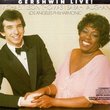
![Bizet: Carmen / Jessye Norman, Freni, Shicoff, Estes, Le Roux; Ozawa [Highlights]](https://nationalbookswap.com/cd//m/87/0887/6020887.jpg)
